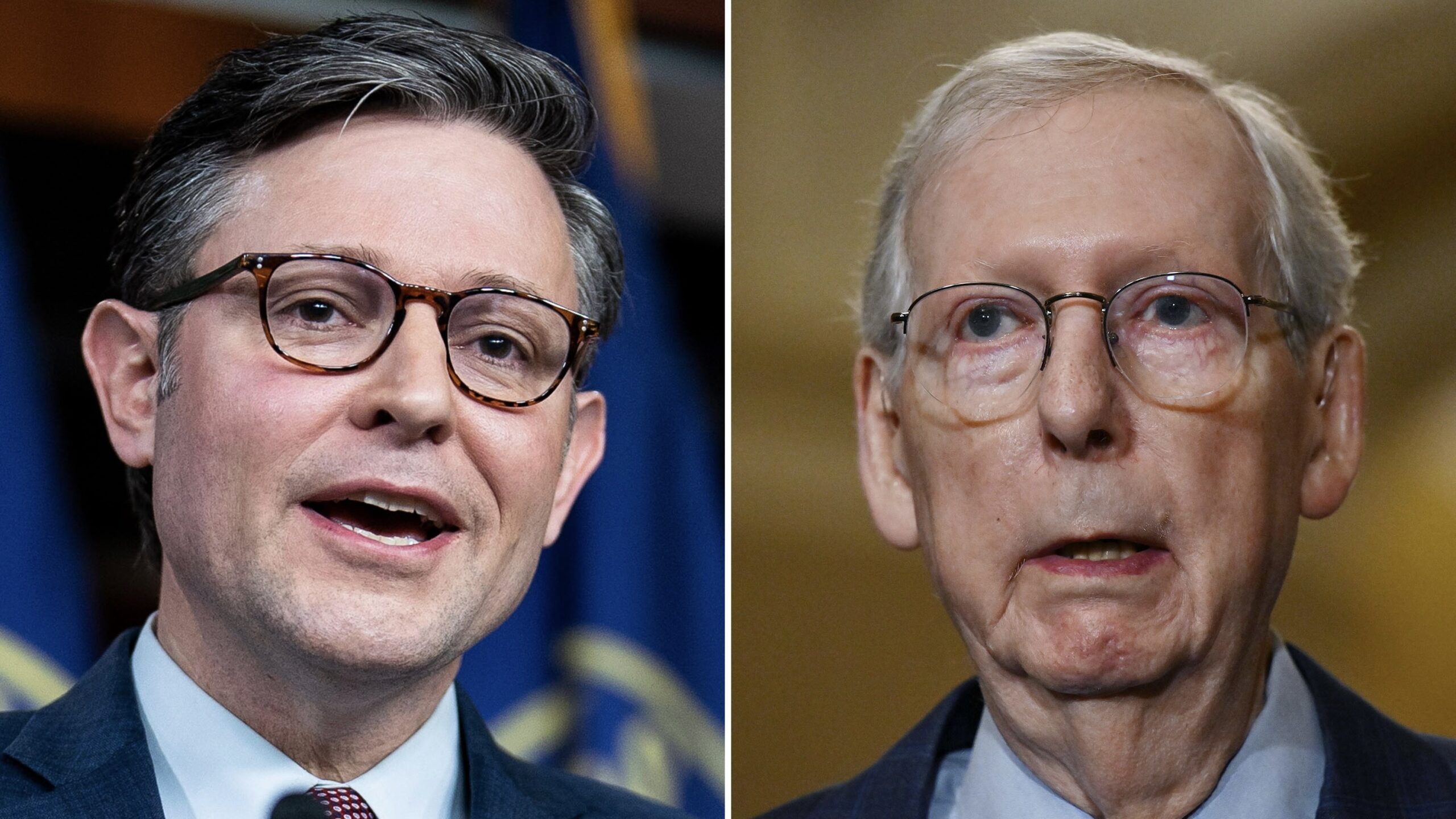Days after RFK Jr. signaled desire to 'Make America Healthy Again,' Time issues defense of ultra-processed foods
Robert F. Kennedy Jr. revealed Friday that a major factor behind his decision to endorse President Donald Trump was the opportunity to help "Make America Healthy Again" in a future Trump administration. "Don't you want healthy children?" said Kennedy. "And don't you want the chemicals out of our food? And don't you want the regulatory agencies to be free from corporate corruption? And that's what President Trump told me that he wanted." Days later, Time magazine signaled a possible narrative shift regarding American health with an article titled "What if Ultra-Processed Foods Aren't as Bad as You Think?" — having just months earlier published an article entitled "Why Ultra-Processed Foods Are So Bad for You." Kennedy, unwilling to buy what Time appeared to be selling, tweeted, "Yeah, what if? And what if ultra-processed foods are WORSE than you think?" The newly minted Trump ally was responding to a post from Dr. Casey Means, the co-founder of the food-health monitoring company Levels, who hammered Time for the apparent attempt in the Monday article to rehabilitate ultra-processed foods' public image. "Mainstream media playbook," Means wrote on X. "When the culture seems to be turning TOWARDS health, rapidly spin up a BS article (like this one that was published yesterday in TIME)" in order to seed confusion; normalize the problem with a "meaningless anecdote"; distract and shut down the discourse by focusing "intensely on social justice issues and questions of food access rather than science"; "mention but then QUICKLY minimize the innumerable studies that say ultraprocessed foods impair hormones, metabolic health, and are associated with early death"; and avoid mention of "funding sources and conflicts of interest at NIH, USDA, FDA, academia, OR THE NEWS OUTLET THAT IS PUBLISHING THE ARTICLE." Kennedy added, "And don't talk about the conflicts at NGO's like NAACP and the Diabetes groups that get their funding from the processed food lobbyists." A race-obsessive's fight to be unhealthy Time's controversial article by Jamie Ducharme — the health correspondent who suggested in 2021 that debilitating vaccine side effects were "normal" — told the tale of how pro-obesity dietician Jessica Wilson took offense at the success and conclusions of an actual medical doctor's recent book concerning the consequences of ultra-processed foods. Ducharme wrote: Wilson, who specializes in working with clients from marginalized groups, was irked. She felt that van Tulleken's experiment was over-sensationalized and that the news coverage of it shamed people who regularly eat processed foods — in other words, the vast majority of Americans, particularly the millions who are food insecure or have limited access to fresh food; they also tend to be lower income and people of color. Wilson felt the buzz ignored this "food apartheid," as well as the massive diversity of foods that can be considered ultra-processed. Dr. Chris van Tulleken, a practicing infectious diseases doctor who earned both his medical degree and his Ph.D. in molecular virology at Oxford University, recently penned an international best-seller titled "Ultra-Processed People: Why We Can't Stop Eating Food That Isn't Food." As part of what appears to have been a marketing campaign for the book, Tulleken increased his intake of ultra-processed foods for a month, such that they accounted for 80% of his diet. He was left with anecdotal evidence of what he had otherwise demonstrated on the basis of hard science. "Ultra-processed foods" are defined in the NOVA food classification system as: industrial formulations made entirely or mostly from substances extracted from foods (oils, fats, sugar, starch, and proteins), derived from food constituents (hydrogenated fats and modified starch), or synthesized in laboratories from food substrates or other organic sources (flavor enhancers, colors, and several food additives used to make the product hyper-palatable). Manufacturing techniques include extrusion, moulding and preprocessing by frying. Beverages may be ultra-processed. Examples of ultra-processed foods include store-bought biscuits; frozen desserts, chocolate and candies; soda and other carbonated soft drinks; prepackaged meat and vegetables; frozen pizzas; fish sticks and chicken nuggets; packaged breads; instant noodles; chocolate milk; breakfast cereals; and sweetened juices. Tulleken told the BBC that after a month of primarily eating ultra-processed food, "I felt ten years older." 'Ultra-processed foods exposure was consistently associated with 32 adverse health outcomes.' The doctor indicated that during the experiment, his hormones and weight destabilized; his brain underwent changes; the quality of his sleep worsened; he experienced anxiety; and he suffered heartburn, a low libido, and sluggishness. "If it can do that in four weeks to my 42-year-old brain, what is it doing to the fragile developin


Robert F. Kennedy Jr. revealed Friday that a major factor behind his decision to endorse President Donald Trump was the opportunity to help "Make America Healthy Again" in a future Trump administration.
"Don't you want healthy children?" said Kennedy. "And don't you want the chemicals out of our food? And don't you want the regulatory agencies to be free from corporate corruption? And that's what President Trump told me that he wanted."
Days later, Time magazine signaled a possible narrative shift regarding American health with an article titled "What if Ultra-Processed Foods Aren't as Bad as You Think?" — having just months earlier published an article entitled "Why Ultra-Processed Foods Are So Bad for You."
Kennedy, unwilling to buy what Time appeared to be selling, tweeted, "Yeah, what if? And what if ultra-processed foods are WORSE than you think?"
The newly minted Trump ally was responding to a post from Dr. Casey Means, the co-founder of the food-health monitoring company Levels, who hammered Time for the apparent attempt in the Monday article to rehabilitate ultra-processed foods' public image.
"Mainstream media playbook," Means wrote on X. "When the culture seems to be turning TOWARDS health, rapidly spin up a BS article (like this one that was published yesterday in TIME)" in order to
- seed confusion;
- normalize the problem with a "meaningless anecdote";
- distract and shut down the discourse by focusing "intensely on social justice issues and questions of food access rather than science";
- "mention but then QUICKLY minimize the innumerable studies that say ultraprocessed foods impair hormones, metabolic health, and are associated with early death"; and
- avoid mention of "funding sources and conflicts of interest at NIH, USDA, FDA, academia, OR THE NEWS OUTLET THAT IS PUBLISHING THE ARTICLE."
A race-obsessive's fight to be unhealthy
Time's controversial article by Jamie Ducharme — the health correspondent who suggested in 2021 that debilitating vaccine side effects were "normal" — told the tale of how pro-obesity dietician Jessica Wilson took offense at the success and conclusions of an actual medical doctor's recent book concerning the consequences of ultra-processed foods.
Ducharme wrote:
Wilson, who specializes in working with clients from marginalized groups, was irked. She felt that van Tulleken's experiment was over-sensationalized and that the news coverage of it shamed people who regularly eat processed foods — in other words, the vast majority of Americans, particularly the millions who are food insecure or have limited access to fresh food; they also tend to be lower income and people of color. Wilson felt the buzz ignored this "food apartheid," as well as the massive diversity of foods that can be considered ultra-processed.
Dr. Chris van Tulleken, a practicing infectious diseases doctor who earned both his medical degree and his Ph.D. in molecular virology at Oxford University, recently penned an international best-seller titled "Ultra-Processed People: Why We Can't Stop Eating Food That Isn't Food."
As part of what appears to have been a marketing campaign for the book, Tulleken increased his intake of ultra-processed foods for a month, such that they accounted for 80% of his diet. He was left with anecdotal evidence of what he had otherwise demonstrated on the basis of hard science.
"Ultra-processed foods" are defined in the NOVA food classification system as:
industrial formulations made entirely or mostly from substances extracted from foods (oils, fats, sugar, starch, and proteins), derived from food constituents (hydrogenated fats and modified starch), or synthesized in laboratories from food substrates or other organic sources (flavor enhancers, colors, and several food additives used to make the product hyper-palatable). Manufacturing techniques include extrusion, moulding and preprocessing by frying. Beverages may be ultra-processed.
Examples of ultra-processed foods include store-bought biscuits; frozen desserts, chocolate and candies; soda and other carbonated soft drinks; prepackaged meat and vegetables; frozen pizzas; fish sticks and chicken nuggets; packaged breads; instant noodles; chocolate milk; breakfast cereals; and sweetened juices.
Tulleken told the BBC that after a month of primarily eating ultra-processed food, "I felt ten years older."
'Ultra-processed foods exposure was consistently associated with 32 adverse health outcomes.'
The doctor indicated that during the experiment, his hormones and weight destabilized; his brain underwent changes; the quality of his sleep worsened; he experienced anxiety; and he suffered heartburn, a low libido, and sluggishness.
"If it can do that in four weeks to my 42-year-old brain, what is it doing to the fragile developing brains of our children?" asked Tulleken.
Lethal groceries
Blaze News reported earlier this year that a massive peer-reviewed study published in the BMJ, the British Medical Association's esteemed journal, found evidence pointing to "direct associations between greater exposure to ultra-processed foods and higher risks of all-cause mortality, cardiovascular disease related mortality, common mental disorder outcomes, overweight and obesity, and type 2 diabetes."
The international team of researchers from institutions such as the Johns Hopkins Bloomberg School of Public Health and the Sydney School of Public Health found that ultra-processed foods exposure was consistently associated with 32 adverse health outcomes, including all-cause mortality; cancer-related deaths; cardiovascular disease-related deaths; heart disease-related deaths; breast cancer; central nervous system tumors; chronic lymphocytic leukemia; colorectal cancer; pancreatic cancer; prostate cancer; adverse sleep-related outcomes; anxiety; common mental disorder outcomes; depression; asthma; wheezing; Crohn's disease; ulcerative colitis; obesity; hypertension; and type 2 diabetes.
"On the basis of the random effects model, 32 (71%) distinct pooled analyses showed direct associations between greater ultra-processed food exposure and a higher risk of adverse health outcomes," said the study. "Additionally, of these combined analyses, 11 (34%) showed continued statistical significance when a more stringent threshold was applied."
Heart disease-related death, cardiovascular disease-related death, all-cause mortality, type 2 diabetes, wheezing, and depression were among the 11 adverse health outcomes that showed continued statistical significance in the face of the more stringent threshold.
Junk science
Prickled both by Tulleken's discussion of such harmful health effects and by his firsthand experience with their impact, Wilson — an activist who ran a "6 week queer exploration of the joys and terrors of having a body," touts herself as the "co-creator of the Amplify Melanated Voices challenge," and apparently believes the desire for thinness is racist — reportedly asked herself, "How can this entire category of foods be something we're supposed to avoid?"
According to Time, Wilson similarly adjusted her diet for so that 80% of what she ate for a month was highly processed foods.
After Wilson chowed down on soy chorizo, Trader Joe's ready-to-eat tamales, cashew-milk yogurt with jam, tater tots, and other highly processed foods for a month, Time reported, "A weird thing happened."
"Wilson found that she had more energy and less anxiety. She didn't need as much coffee to get through the day and felt more motivated. She felt better eating an ultra-processed diet than she had before, a change she attributes to taking in more calories by eating full meals, instead of haphazard combinations of whole-food ingredients," wrote Ducharme.
Time magazine's health correspondent posed the question: "How could two people eating the same type of foods have such different experiences? And could it be true that not all ultra-processed foods deserve their bad reputation?"
Despite citing numerous legitimate studies indicating ultra-processed foods are indeed harming and possibly even killing Americans, Ducharme hedged, writing:
Most people who care about their health have the same question about processed foods: Are they killing me? And right now — despite their looming possible inclusion in dietary guidelines — no one really knows the answer. There's limited cause-and-effect research on how processed foods affect health, and scientists and policymakers have yet to come up with a good way to, as Hess says, "meaningfully delineate between nutrient-dense foods and nutrient-poor options."
The Time article concluded with Wilson's insinuation that she would choose ultra-processed foods "every time" if it meant going to bed feeling full.
The article has been roundly ridiculed online, with many critics noting the politically expedient timing of its release.
Adam Johnston, of the Substack "Conquest Theory," responded to the article, writing, "We can't speak the truth about ultra-processed foods because it will shame marginalized groups. So we have to keep pretending our diets are healthy while obesity soars and people die. We wouldn't want to hurt the feelings of marginalized groups, now would we?"
Blaze Media CEO Tyler Cardon noted, "If you need more motivation to ditch ultra-processed foods, this headline from this publication should do the trick."
"Not a week after @RobertKennedJr raised the awareness back to the masses on the dangers of ultra-processed foods," wrote Turning Point USA spokeswoman Isabel Brown.
Like Blaze News? Bypass the censors, sign up for our newsletters, and get stories like this direct to your inbox. Sign up here!
Originally Published at Daily Wire, World Net Daily, or The Blaze
What's Your Reaction?
































































































